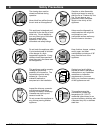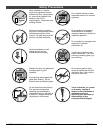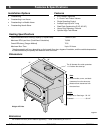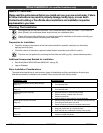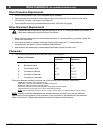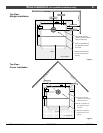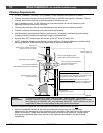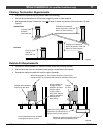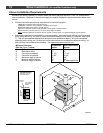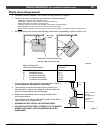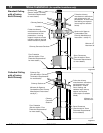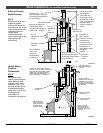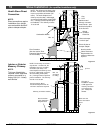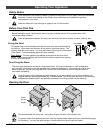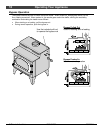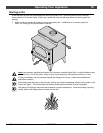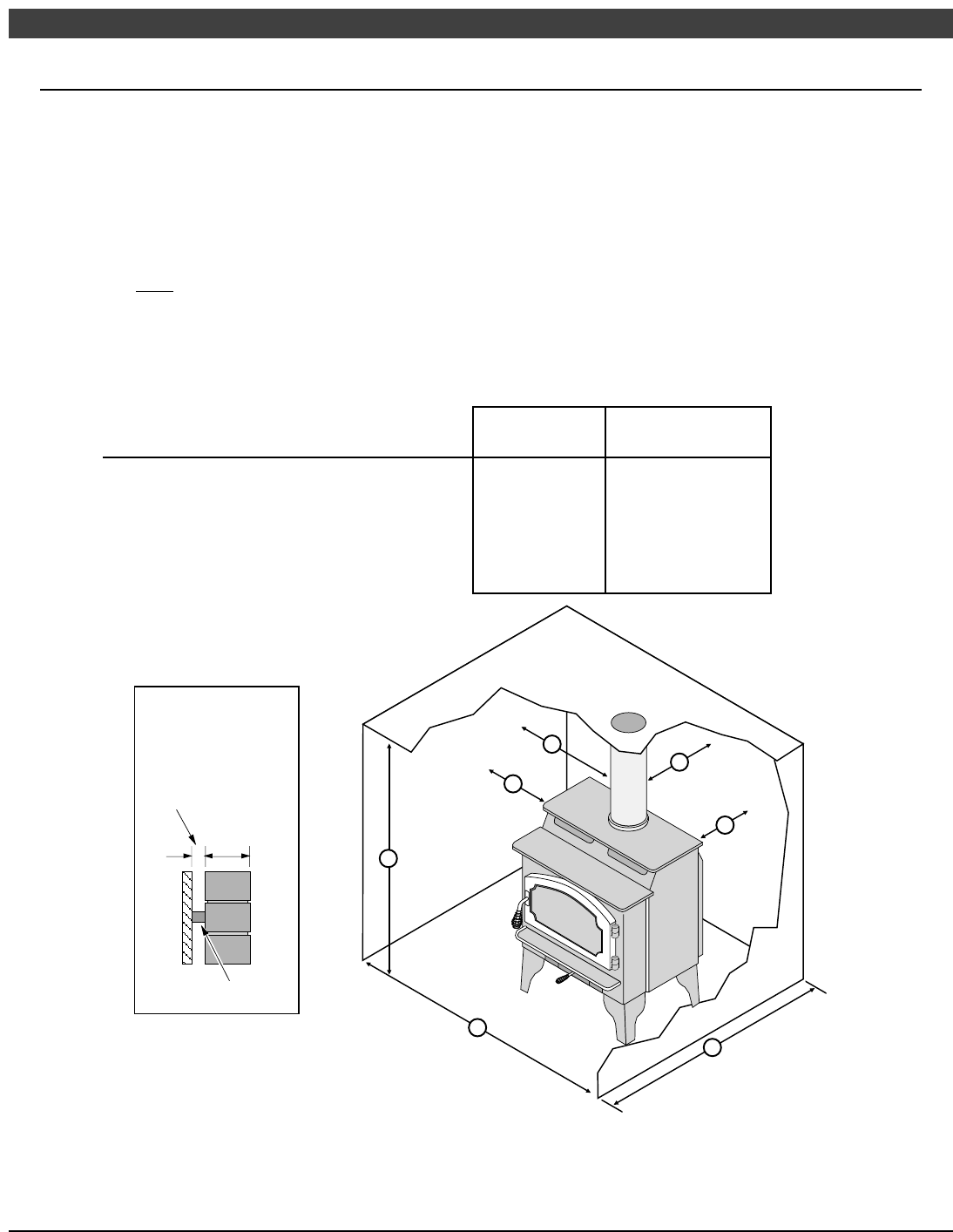
12 Stove Installation (for qualified installers only)
© Travis Industries 100-01164 4041115
Alcove Installation Requirements
Whenever the stove is placed in a location where the ceiling height is less than 7' tall, it is considered an
alcove installation. Because of the reduced height, the special installation requirements listed below must
be met.
• Chimney connector and chimney must be one of the following types:
AMERI-TEC model DCC with model HS chimney
DURAVENT model DVL with DURATEC or DURA-PLUS chimney
METALFAB model DW connector with TG chimney
SECURITY model DP connector with SECURITY model ASHT or S2100 chimney
Standard Masonry Chimney with any one of the above listed connectors
NOTE: Reduced clearance connectors may not connect to the flue collar – an appliance adapter may be required.
• Alcoves are classified as combustible or non-combustible. Non-combustible alcoves must have walls
and a ceiling that are 3 1/2" thick of a non-combustible material (brick, stone, or concrete - see Figure
7). This non-combustible material must be spaced and ventilated at least 1" off of all combustible
materials (walls, ceiling, etc.) to allow air to move around the non-combustible walls and ceiling. All
other alcoves are considered combustible. The clearances below must be met:
Minimum Clearance
(See the Figure 7 below)
Combustible
Alcove
Non-Combustible
Alcove
A Sidewall to stove 16" 6"
B Backwall to stove 10" 2"
D Connector to sidewall 27-1/2" 17-1/2"
E Connector to backwall 12-3/4" 4-3/4"
G Maximum depth of alcove 48" 48"
H Minimum width of alcove 62" 42"
J Minimum height of alcove 84" 6" above stove top
Non-combustible alcove
construction (on walls
and ceiling) - see the
explanation above.
3 1/2" thick non-
combustible
material
Combustible
materials
1" Min.
Ventilated
air space
Non-combustible
reinforcer
a
b
d
e
h
j
g
Figure 7



